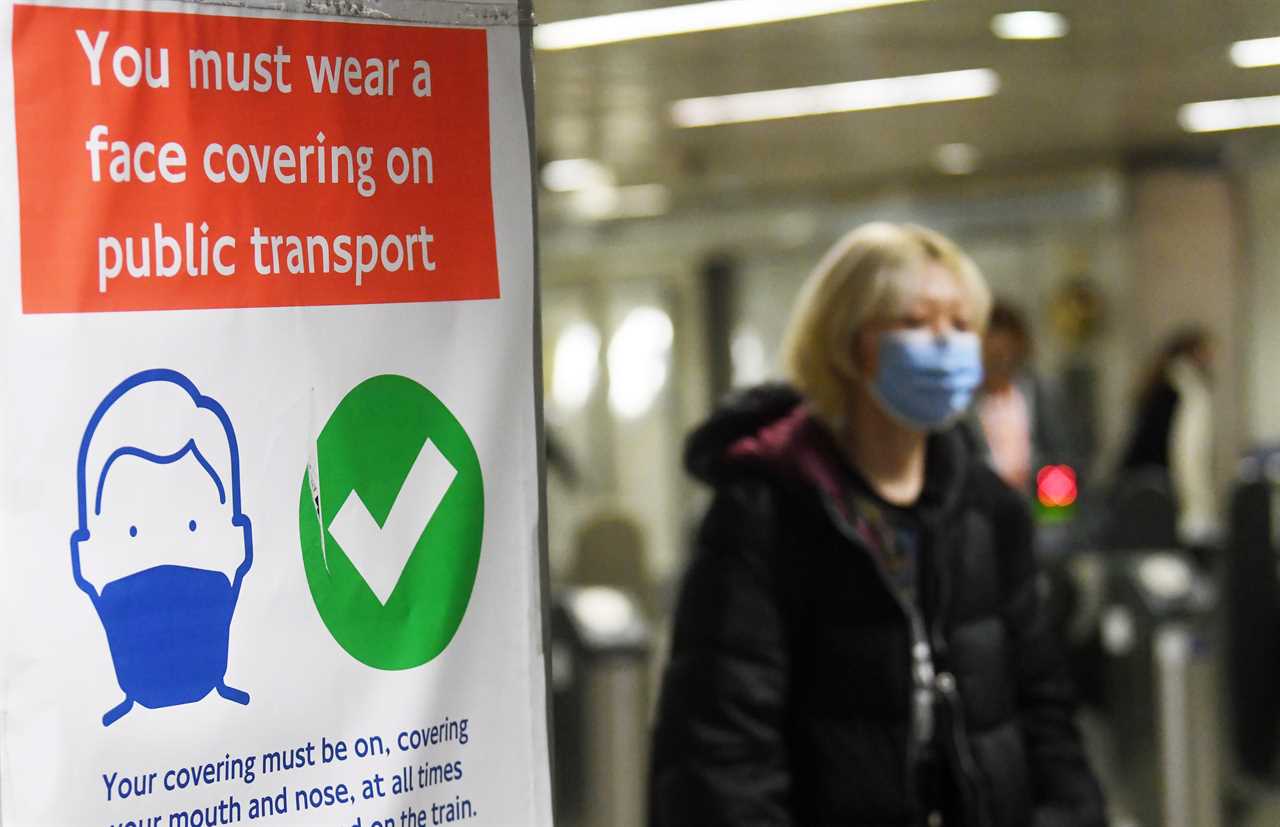COVID cases jumped up by 92,368 today as reinfections have been counted for the first time.
Today’s figure announced by the UK Health and Security Agency (UKHSA) is 48 per cent higher than the 62,399 reported yesterday.

However, figures are always lower on a weekend, when Scotland also does not report its case numbers.
It comes as reinfections are being counted in the daily toll for the first time in a change that came into effect as of January 31, which is why the figure is that much higher.
Anyone who tests positive at least 90 days after a previous infection will be considered a reinfection, UKHSA said.
Previously, people who tested positive for Covid were only counted when they first tested positive.
For example, someone who tested positive for a second time today, after previously having Covid three months ago, will now be recorded as a “reinfection”.
Before, they would have missed off the data entirely, including in the daily count.
Reinfections have been relatively rare. But as the pandemic has progressed and new variants have emerged, reinfections have grown and data has become easier to collect.
Ninety days is a period after which it is reasonable to assume that a second positive test is likely to be a reinfection, rather than fragments of the virus from the initial infection causing a positive test.
UKHSA will add reinfections backdated to the beginning of the pandemic in 2020.
A further X deaths were announced by UKHSA today, a week-on-week rise of X against last Monday’s 56.
A string of hugely positive studies show Omicron is milder than other Covid strains, especially in the vaccinated.
But a booster vaccine is crucial and the only shot at protection against hospitalisation and death, studies reveal.
Trending In The News’s Jabs Army has helped recruit thousands of volunteers to get jabs into arms at NHS centres.
Prof Rowland Kao, the Sir Timothy O’Shea Professor of Veterinary Epidemiology and Data Science, University of Edinburgh, said: “The additional data on reinfections will be useful information, particularly at this time, when it is likely that re-infections will be occurring with increasing frequency and therefore the rate of new infections occurring decreasingly representative of the true course of the epidemic.
“If there are high numbers of reinfections then this will be due to a combination of the sheer number of people already infected, and the fact that, as immunity wanes, the likelihood is that protection is also waning.
“Thus having an estimate of the rate of re-infection (and remember it is only an estimate as many people will not know they previously had Covid) will help to determine how quickly immunity is waning across the country and therefore crucially, when further boosters may need to be considered.”

Follow our Covid live blog for all the latest updates
The Covid outbreak had been on a rapid downward trajectory following an early January peak caused by the super mutated Omicron variant.
But the speed of the decline has suddenly halted at an average daily rate of 90,000 new cases.
Experts say the trends are being driven by children returning to school for the new term and catching the bug in classrooms.
The ZOE COVID Symptom Study app said “the recent uptick in children aged 0-18 reported last week has accelerated, to its highest levels”.
Cases are spilling over and rising in the 35-55 age group and are no longer falling in all other age groups.
Professor Tim Spector, lead scientist on the ZOE COVID Study app, said we’ve seen the end of school holidays “repeatedly usher in a rapid rise in cases among children, which then cross over into parents and school staff”.
He said: “I expect that cases will continue to stay high until spring. However, the good news is that most vaccinated infections are mild, with symptoms lasting on average for a shorter time overall than Delta and with less severe cases.”
It comes as thousands more Brits were able to book life-saving boosters today.
People aged 16 and over who are severely immunosuppressed can go online and use the national booking service to book their booster jabs, technically their fourth dose.
Meanwhile, vulnerable five to 11-year-olds became eligible for their first Covid-19 jab.
As the Covid outbreak fizzles, more Plan B measures were dropped in England today.






